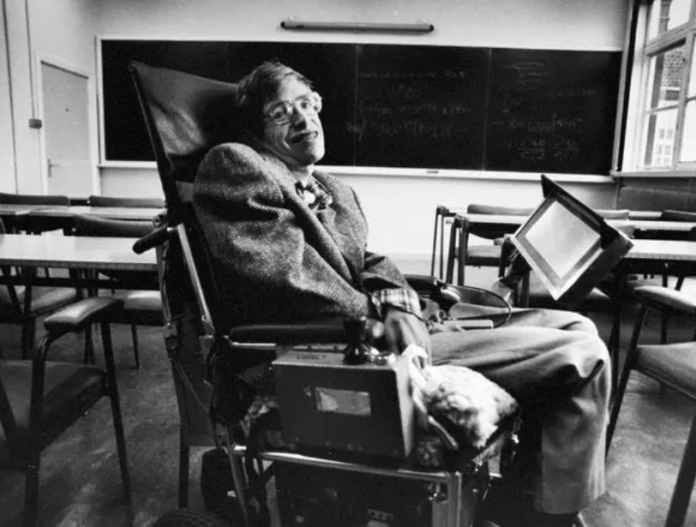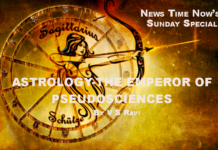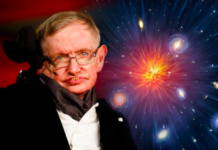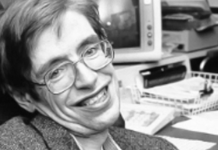Stephen Hawking, who died recently, was a brilliant star in astrophysics who should have been awarded the Nobel Prize.
By not having awarded the world’s most prestigious and coveted Nobel Prize to Stephen Hawking, one of the greatest astrophysicists of the twentieth century, the Nobel Committee has not exactly enhanced its own reputation.
Hawking is perhaps the only scientist to have attempted the seemingly elusive task of unification of Einstein’s Relativity with the bizarre implications of Quantum Theory- an intellectual feat that required a deep knowledge of the relationship between space and time and an understanding of all the major “interactions” in the Universe. It seemed that if anyone had the genius to attempt this, it was only Stephen Hawking who understood the nature of Black Holes, time, space and the various Astrophysical entities better than any other Scientist.
Indeed, it will remain a permanent blot on its generally reputed untarnished image notwithstanding some glaring omissions and commissions. Several times in the past the Nobel Committee has been guilty of such blunders. But before that, here are some brief statistics that would give an idea of the history of the Nobel Prizes.
Since the inception of the Prize in 1901, the Nobel Committee has given out 892 prizes to individuals and 27 prizes to unique organisations till 2017- a few individuals have been given the Prize more than once. The Prize was not awarded 49 times, between 1914 and 1918 and again between 1939, and 1945 i.e during the period of the two World Wars.
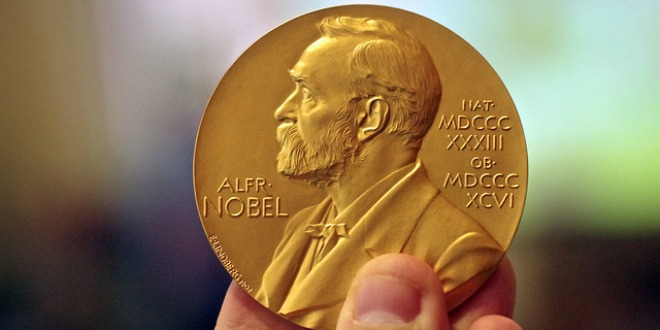 In all only 49 women have won the Prize. Two persons, Jean Paul Sartre and Le Duc Tho declined the Prizes, citing personal reasons. Four persons were forced to decline the Prize, three Germans by Hitler and Boris Pasternak by Russia. Linus Pauling was the only person to have been awarded an unshared Prize twice – one for Chemistry and another for peace. F.Sanger,J.Bardeen and M Curie have won shared Prizes twice. Six married couples, Marie Curie and Pierre Curie, their daughter Irene Joliot Curie and her husband Frederic Joliot, Carl Cori and his wife Gerry Cori, Edward I.Moser and his wife May- Britt Moser, Gunnar Myrdal and his wife Alva Myrdal have got the Prize.
In all only 49 women have won the Prize. Two persons, Jean Paul Sartre and Le Duc Tho declined the Prizes, citing personal reasons. Four persons were forced to decline the Prize, three Germans by Hitler and Boris Pasternak by Russia. Linus Pauling was the only person to have been awarded an unshared Prize twice – one for Chemistry and another for peace. F.Sanger,J.Bardeen and M Curie have won shared Prizes twice. Six married couples, Marie Curie and Pierre Curie, their daughter Irene Joliot Curie and her husband Frederic Joliot, Carl Cori and his wife Gerry Cori, Edward I.Moser and his wife May- Britt Moser, Gunnar Myrdal and his wife Alva Myrdal have got the Prize.
Both father and son have won it six times- they are William Bragg and Lawrence Bragg, Neil’s Bohr and Aage Bohr, Arthur Kornberg and Roger Kornberg, Manne Seigbahn and Kai Seigbahn, J.J. Thompson and G.P. Thompson, Hans Von Euler- Chelpin and Ulf Von Euler. Two brothers Nikolas Tinbergen and Jan Tinbergen and an uncle CV Raman and his nephew S.Chandrasekhar have got the prize. The youngest Prize winner is Malala Yousafzai who won the Peace Prize at the age of 17 in 2014. The oldest winner is Leonid Hurwicz at the age of 90 in 2007, in Economic Sciences.
The country that has cornered the maximum number of prizes is the United States (368) , followed by the United Kingdom (132) Germany (107) and France (62). It is a shame that India’s tally is only 6.
One significant factor that must be borne in mind is that all Nobel Laureates are not equal in stature and the Prize is indeed not a great leveller. For example some of the Prize winners in England’s Cambridge University and Oxford University are such great scientists that they are literally the equal of five to even ten Nobel winners elsewhere. Neils Bohr, Paul Dirac, Francis Crick, Ernest Rutherford, J.J. Thompson, William Bragg, Kendrew, Max Perutz, Bertrand Russel, Professor Adrian, Steven Weinberg, Sherrington, C.F. Powell, and S.Chandrasekhar, of Cambridge, and Dorothy Hodgkin, Sir Robert Robinson, Linus Pauling, Sir Peter Medawar, Erwin Schrodinger of Oxford are each equal to five to ten other winners, who made much less significant contribution..
Having said this let us have a look at some of its glaring omissions. Freeman Dyson who made enormous contribution in the field of Quantum Electrodynamics (e.g Schwinger-Dyson equation) was missed out when the Prize was given to Richard Feynman, Julian Schwinger, and Shinichiro Tomonaga.
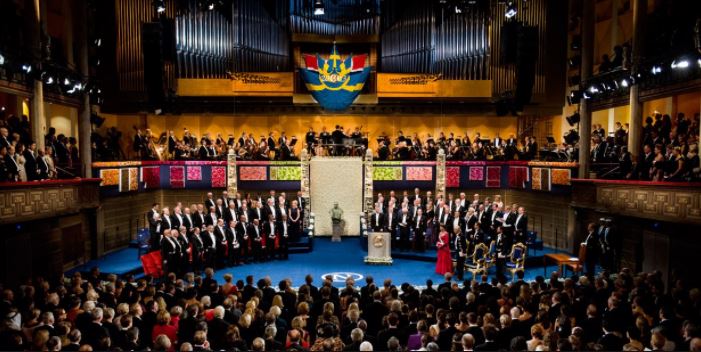
Rosalynd Franklin was ignored by the Nobel Committee which awarded the Prize to Francis Crick, Jim Watson ,and Maurice Wilkins, for the elucidation of the structure of the DNA. The contention of the Nobel Committee that the award which was given only in 1962 could not have been given posthumously to a person (she died of cancer in 1958) was not appreciated even in scientific circles. If for example Roger Penrose, who did significant research on Black Holes along with Stephen Hawking were to be given the Prize, in the near future, it would be a repetition of the blunder made in the case of Rosalynd Franklin.
However, it is universally felt the greatest omission in the 106-year chequered history of the Nobel prize was undoubtedly the nonrecognition of Mahatma Gandhi though of course Gandhi is the greatest man of peace of the 20th century and a Nobel Prize would not exactly have had any positive impact on his stature. On the other hand, the Nobel committee did sustain a slight loss in its prestige and a dent in its credibility, by ignoring Gandhi. It is ironical and unpardonable that in 1948, the year in which Gandhi died the Nobel Committee in order to cover up its lapse, declined to award a prize on the grounds that “there was no suitable living candidate” that year. A deplorable contention.
You May Like To Read: Scientists Are Sometimes Petty, Not Poets
To add insult to injury when the 14th Dalai Lama of Tibet was awarded the Peace Prize in 1989, the chairman of the committee said that this was “in part a tribute to the memory of Mahatma Gandhi” a classic example of unconvincing rationalisation. How can the Nobel Committee ever justify having ignored Gandhi when it subsequently gave the award to San Suu Kyi , while under arrest, Yasir Arafat and even Kissinger of all persons?
The award of the Peace Prize to Obama in 2009 generated a controversy. Nominations had closed only eleven days after Obama took office. It’s another matter Obama himself later stated that he didn’t feel like receiving the Award.
Sometimes there is normal delay in recognising work of great significance. The belated recognition of Chandrasekhar for work done almost 50years earlier and the equally abnormal delay of the prize to Higgs for a prediction made by him in 1965 are glaring examples. In many cases even in scientific circles there is a certain impatience.While appreciating the fantastic discovery of a particular scientist the question “What is the Nobel Committee waiting for?” gains momentum. The work of Roger Penrose (along with Stephen Hawking) on the physics of Black Holes, and the invention of a Mirror Box by the renowned neuroscientist Vilayanur Ramachandran to alleviate phantom limb pain in which patients feel they still have a limb after having been amputated (which had baffled neuroscientists for about 100 years), are two glaring examples.






























